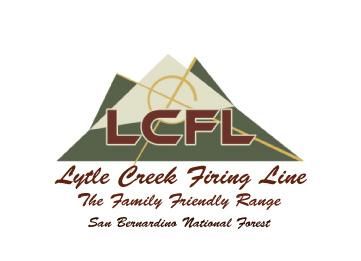The Truth About Old Bikers: Debunking the Myths
- Home
- Journal
- Scuttlebut
- The Truth About Old Bikers: Debunking the Myths
There are many motorcycle myths and stereotypes about motorcycle riders, and in particular, about older bikers. Some people believe that once you hit a certain age, you should put away your motorcycle and retire from the lifestyle. Others think that older motorcycle riders are dangerous, reckless, or just plain crazy. But the truth is, these myths are far from accurate. This motorcycle myth article will explore the truth about old bikers, motorcycle riding, and motorcycle accidents. We will also debunk some of the most common motorcycle myths associated with them as well as some truths like “loud pipes save lives” and why some riding gear is better than others while riding a bike.
Myth 1: Older Bikers Are More Dangerous
One of the most common myths about older bikers is that they ride their bike more dangerously than younger, more cautious riders. This stereotype may stem from the belief that our reflexes and motor skills decline as the motorcyclist ages, making these elders more prone to accidents and highway safety averse.
However, research has shown that this is not necessarily the case. In fact, a study published in the Journal of Safety Research found that older, veteran motorcyclists were involved in fewer crashes per mile traveled than their younger counterparts facing a similarly dangerous situation. The bottom line, it’s just a popular myth outside of the experienced rider community. If anything, motorcycle safety and avoidance of motorcycle crashes are a testament to the fact these old codgers are still alive.
Myth 2: Older Bikers Are More Likely to Get Injured
Another myth about older bikers is that they are more likely to get injured in an accident. While it is true that older riders may be more susceptible to certain types of injuries, such as fractures and head injuries, this does not mean that they are more likely to be involved in accidents in the first place. In fact, according to the same study mentioned above, older motorcyclists were less likely to sustain injuries in a crash than younger riders. Whether they wear a helmet or not, these bikers are better at inspecting their brakes, and tires and traveling at a safe speed for the road conditions. They simply know how to stay safe from other car drivers and have a better grip on reading traffic with enough time to plan for vehicle incidents and take evasive action, or even ride and slide their bike like a surfboard if it laws down in a transportation incident.
Myth 3: Older Bikers Can’t Handle Heavy Bikes
Some people believe that we lose the strength and ability to handle heavy motorcycles as we age. However, this is not true where the rubber actually meets the road. While it is true that certain medical conditions or physical limitations may make it difficult for some older riders to handle large or heavy bikes, many older bikers continue to ride large touring bikes along the tarmac well into their 70s and beyond.
Myth 4: Older Bikers Are Not as Skilled
Another common misconception about older bikers is that they are less skilled or prepared than younger riders. However, this is not necessarily true unless the older rider is a novice. Lack of experience and slower reflexes is always an obstacle. While it is true that some older riders may have physical limitations or may not have the same level of experience as younger riders, many older bikers have been riding for decades and have honed their skills over time. Hence, any lack of reflexes is more than made up for my muscle memory and years of motorcycling.
Myth 5: Older Bikers Are Not Tech-Savvy
Many people believe that older bikers are not as tech-savvy as younger riders and may struggle with modern motorcycle technology. However, this is not true either. Many older riders embrace new technology and are just as comfortable using GPS navigation systems and other high-tech features as younger riders. These misconceptions are not slowing, despite the fact that these steel beasts require more than a summer to master, and wisdom taught by elders is the best way to stay alive or at least stay safer as you travel by bike sitting on your saddle.
Motorcycle accidents are far less common among a driver with life experience on two wheels. This is a person who knows how to slow down and brake in dangerous traffic without laying down their bike to avoid a collision. This is a rider who knows how to use their handlebars while braking to avoid hitting a fixed or moving object. This is a rider who is an expert at judging distance and stopping distance in hot weather and in the rain. These bikers understand what it’s like to visit a friend in the hospital who chose to keep riding all their days.
Myth 6: Older Bikers Are Not as Social
Some people believe that older bikers are not as social as younger riders and may prefer to ride alone to increase their hermit-like existence. While it is true that some older riders may prefer to ride alone or with a small group of friends, many older bikers are active in social groups and participate in group rides and events. Knowing the mind of an older biker who is likely a combat vet, helps you understand their choice of staying elite as opposed to other more standard options involving large groups of riders. It’s simply fiction, and to argue otherwise flies n the face of reality.
Myth 7: Older Bikers Don’t Care About Safety
Another important nonsense myth about older bikers that needs to be debunked is that they don’t care about safety and are more likely to engage in risky behavior. However, this is not true. Many older bikers are safety-conscious and take steps to protect themselves while riding, such as wearing protective gear, practicing safe riding techniques, and maintaining their motorcycles in good condition. These riders are more used to dangerous situations and are better at quickly preventing accidents using methods and products designed specifically for them, used for thousands of road miles.
Myth 8: Older Bikers Should Retire from Riding
Some people believe that once you hit a certain age, you should retire from riding and find another episode in your life, like writing a journal. The real problem with that is that older riders will tend to fade away on their own, so it’s not one of those cases where they just ride into oblivion. They have learned great experiences, and telling young riders in a riding group about this kind of wisdom will help decrease the chances newer riders will have their lives cut short. In short, older bikers can help improve the riding community coming up today by staying engaged, as they share their ways with the new breed.
Myth 9: Older Bikers Can’t Keep Up with Younger Riders
Another common myth about older bikers is that they can’t keep up with younger riders and may struggle to ride at high speeds. While it is true that some older riders may prefer a more leisurely pace or may not be as interested in racing or sport riding, many older bikers are still able to ride at high speeds and enjoy the thrill of the open road. This means you need to read into things a bit further. If they are in an M/C they can probably ride a young man under the table, so don’t get me started!
Conclusion:
In conclusion, the myths and stereotypes about old bikers work just like all myths. There is no reason why older riders can’t continue to enjoy their motorcycles and participate in the biker lifestyle. While it is true that some older riders may start to have physical limitations, they can adjust their riding style as they age. This does not mean that they are any less skilled, experienced, or safety-conscious than younger riders. By debunking these myths and stereotypes, we can help to create a more inclusive and welcoming motorcycle community that works for riders of all ages of all times. Choose a lifestyle and fellow riders that love the open road in the same way as you, giving respect to the veteran riders as you look upon them as a positive example.
Resources
General Stuff
Address
Paul Ehline Ehline Memorial Ride
3838 W Carson St.
Torrance, CA 90503
Phone : (310) 622-8719
© paulehlineride.org. All rights reserved.
Donations submitted through donation forms on PaulEhlineRide.Org are tax-deductible to the fullest extent allowed by U.S. and state laws. These will be in U.S. Federal Reserve Notes. Paul Ehline Memorial Ride™ is a U.S. nonprofit, tax-exempt charitable Section 501(c)(19) organization that benefits US Armed Forces veterans under the U.S. Internal Revenue Code. (Tax identification number 85-4040563.)





